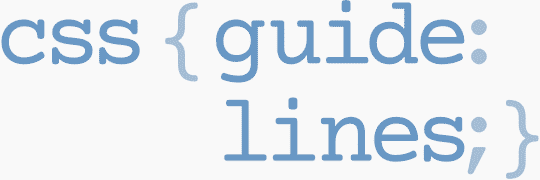By Harry Roberts
Harry Roberts is an independent consultant web performance engineer. He helps companies of all shapes and sizes find and fix site speed issues.
Written by Harry Roberts on CSS Wizardry.
Zebra-striping tables is certainly not a new thing; it has been done and discussed for years. They (allegedly) aid usability in reading tabular data by offering the user a coloured means of separating and differentiating rows from one another. I say allegedly, there has been research into their effectiveness, conducted by Jessica Enders over at A List Apart which proved pretty inconclusive.
Striping a table’s alternate rows couldn’t be simpler. By programatically adding a class of odd or suchlike to every other <tr> you can then apply styles to this row (usually a pale background colour) and create zebra-stripes. An even better method would be to ditch the extraneous class and use the nth-of-type selector, thus:
<code>tbody tr:nth-of-type(odd){
background:rgba(255,255,136,0.5); <span class="code-comment">/* Pale yellow with 50% opacity */</span>
}</code>
What the nth-of-type selector is doing here is looking for every odd <tr> in the <tbody>, that is to say the 1st, 3rd, 5th, 7th and so on.
By understanding this, we can apply that logic to create zebra-striped columns, too. Thus:
<code>tbody td:nth-of-type(odd),
thead th:nth-of-type(odd){
background:rgba(255,255,136,0.5);
}</code>
Above: Here we target every other <th> in the <head>, and <td> in the <tbody>.
We can also combine the two, to create a table where every other row and every other column is striped simultaneously, and by using the rgba() colour declaration we can effectively layer the stripes, therefore showing where they cross over. The code for this simply combines the two:
<code>tbody td:nth-of-type(odd),
tbody tr:nth-of-type(odd),
thead th:nth-of-type(odd){
background:rgba(255,255,136,0.5);
}</code>
Sure thing, here you go…
After questions about browser support, I have decided to add a little onto the article…
The selectors involved here are only supported in CSS3 capable browser, that is to say pretty much anything but Internet Explorer. However, due to zebra-striping’s negligible benefits and inherently progressive nature, I don’t feel that it is a feature that is important enough to warrant full cross-browser support. Research shows that tables are just as usable without zebra-striping as with, therefore in IE et al, the user is not receiving a sub-par experience.
Of course if you do want to support Internet Explorer, you can always revert to programmatically adding an odd class to <tr>, <th> and <td> elements.
Harry Roberts is an independent consultant web performance engineer. He helps companies of all shapes and sizes find and fix site speed issues.

Hi there, I’m Harry Roberts. I am an award-winning Consultant Web Performance Engineer, designer, developer, writer, and speaker from the UK. I write, Tweet, speak, and share code about measuring and improving site-speed. You should hire me.
You can now find me on Mastodon.


I am available for hire to consult, advise, and develop with passionate product teams across the globe.
I specialise in large, product-based projects where performance, scalability, and maintainability are paramount.